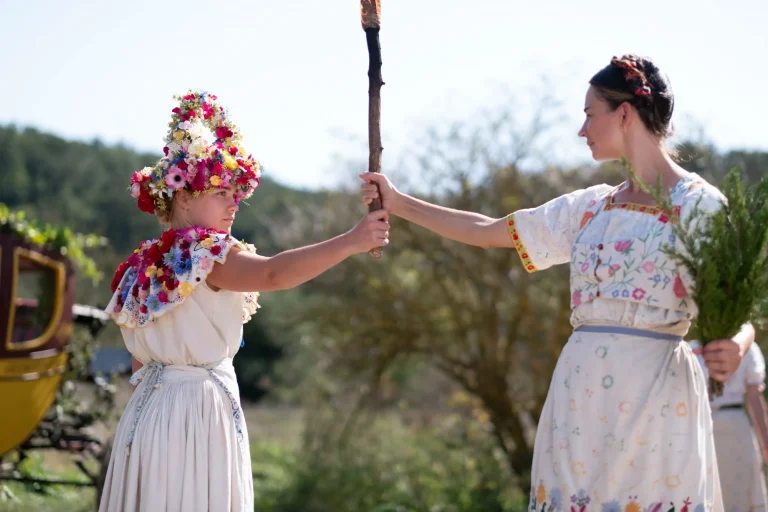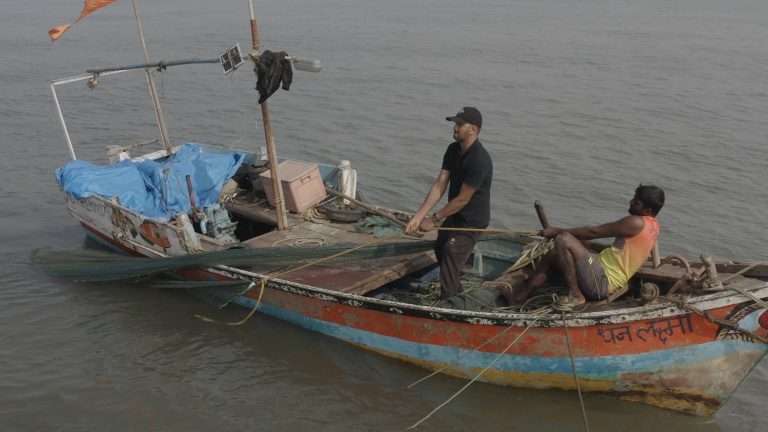Director Levan Akin prefaces the screening of his film, And Then We Danced, by dedicating it to the 6 year anniversary of a mob attack on LGBT youths during pride in Georgia. Additionally, he states that he is credited anonymously due to fear of repercussions and the reaction to his story about a romance between two dance academy rivals completely infatuated with each other.
The trailer of ‘And Then We Danced’
It is a tale about sexual expression, financial struggles, familial struggles yet also about the bursting point when everything becomes too stressful for the young men looked down upon by those who fear their orientation. And Then We Danced, whilst dramatically slow, is ready to burst with raw, emotionally gripping nuance about homophobia coupled with extrinsic issues. And it never really does.
Most have already pointed this out, but I simply cannot ignore the similarity to Luca Guadagnino’s Call Me By Your Name (sometimes with almost direct clones of the scene, particularly the short sniffing scene). And, although this has been the main focus of other critics particularly when comparing the relationship between the two dancers, I also felt that the last 10 minutes were pretty much akin to Damian Chazelle’s Whiplash.
A Georgian combination of Call Me By Your Name AND Whiplash might seem like arthouse fanatic’s wet dream, but the film doesn’t even come close to achieving the Oscar-deserving thematic tension that Guadagnino and Chazelle created. However, cast wise, it doesn’t stray far from excellence. The lead, in particular, Merab portrayed by Levan Gelbakhiani, is a revelation. He delivers his lines with age-appropriate realism, elegance and is a complete charm to watch. I was supremely hooked into his dynamic with Irakli (Bachi Valishvili), his competitor and lover as well as the pressure exerted on him by the dance academy.
“You’re too soft!” exclaims the stern and strict coach Aliko (Gogidze), Georgian dance is supposed to represent masculinity as we come to understand, and I couldn’t wait to see how the fantastically directed sequences of duets would come to correlate with Merab’s eventual sexual freedom. Instead, the film takes the route of splitting the focus into his tough relationship with brother David (Giorgi Tsereteli).
We get a singularly brilliant one to one conversation between the two, it is heartfelt and overall a potent deconstruction of toxic masculinity through the guise of sibling squabbles. Despite all of that, I still felt like And Then We Danced’s strengths lay in other emotional territories. Unlike ‘Call me by your name’, the relationship between Merab and Irakli is so painfully rushed that we don’t get the time to appreciate how the struggle of being a queer adolescent in this marginalised climate is sickeningly dangerous. We get rumours and references, even a dream, but I don’t quite think the narrative carries the hopeful (or perhaps even tragic) resolution in times of LGBT persecution that it thinks it does.
From Cannes – Bacurau [2019] – ‘Seven Samurai’ with a South American charm
Still, the heart is in the right place here, gorgeously acted and softly directed. If you’re looking for your fill before we get the next messiah in a renaissance of wonderful queer cinema, this might just do – although personally – I would make more time to watch Simon Amstell’s Benjamin instead.
And Then We Danced Rating: ★★★
And Then We Danced Links – IMDb, Rotten Tomatoes
Cast – Levan Gelbakhiani, Bachi Valishvili, Ana Javakishvili
Running Time – 103 min

![Adam [2019]: ‘IFFI’ Review – An Admirable Film about Living Within the Social Fringes](https://79468c92.delivery.rocketcdn.me/wp-content/uploads/2019/11/Adam_pic-2-768x431.jpg)
![Shooting the Mafia [2019]: ‘Fantasia’ Review – Photogenic Revolution](https://79468c92.delivery.rocketcdn.me/wp-content/uploads/2019/08/shooting-the-mafia-768x497.jpg)

![Victim(s) [2020]: ‘NYAFF’ Review – A Brutal, taut film where strong writing shapes an important drama](https://79468c92.delivery.rocketcdn.me/wp-content/uploads/2020/09/Victims-Movie-Review-highonfilms-1-768x512.jpeg)
![The Odd-Job Men [2021]: ‘TIFF’ Review: A Mellow Dramedy Built into an Environment of Crisis](https://79468c92.delivery.rocketcdn.me/wp-content/uploads/2021/09/the-odd-job-men-768x528.jpg)
